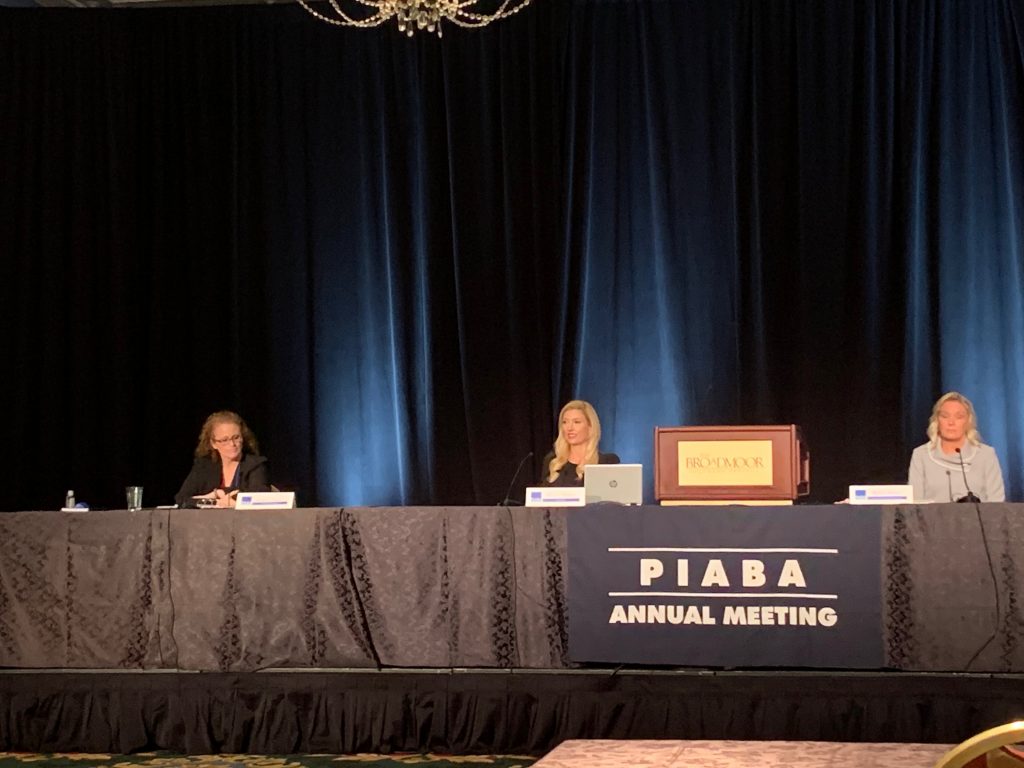 If you have a case against your brokerage firm, you may need to file a FINRA arbitration because it is a requirement in many brokerage agreements as the agreed to method for dispute resolution. When you opened your account with your brokerage firm, you likely signed an agreement that included a mandatory arbitration clause. This clause requires you to resolve any disputes with the firm through arbitration, rather than going to court.
If you have a case against your brokerage firm, you may need to file a FINRA arbitration because it is a requirement in many brokerage agreements as the agreed to method for dispute resolution. When you opened your account with your brokerage firm, you likely signed an agreement that included a mandatory arbitration clause. This clause requires you to resolve any disputes with the firm through arbitration, rather than going to court.
FINRA, or the Financial Industry Regulatory Authority, is the organization responsible for overseeing the securities industry in the United States. They have a dispute resolution process that allows investors to file claims against brokerage firms and their representatives. This process involves a panel of arbitrators who hear evidence and make a decision about the case.
Filing a FINRA arbitration can be a quicker and less expensive way to resolve disputes than going to court. However, it is important to note that the decision made by the FINRA arbitrators is generally final and binding, meaning that you will be able to appeal the decision only under very limited circumstances. It is also important to note that the arbitration process can be complex, so it is important retain a law firm, such as Hanley Law, that is familiar with securities law before filing a claim.
The process of filing a FINRA arbitration case and the procedure and applicable deadlines are as follows:
- Statement of Claim: The customer initiates the arbitration process by filing a Statement of Claim with FINRA.
- Statement of Answer: The Respondent brokerage firm has 45 days to file their response.
- Appointment of Arbitrators: The parties will receive a list of potential FINRA arbitrators who may be appointed in the case based on the location for the final hearings. Each party has an opportunity to rank and strike potential arbitrators and then FINRA staff will appoint a panel of up to 3 arbitrators who receive the combined highest ranking by the parties.
- Discovery Guide document exchange: The parties must file documents and objections to the FINRA Discovery Guide within 60 days of the Statement of Answer being filed. FINRA provides a Discovery Guide for each party setting forth the documents that are presumptively discoverable and should be produced without a discovery request being propounded by the opposing party.
- Preliminary Hearing: Counsel for the parties will have a preliminary hearing with the arbitration panel to discuss procedural matters and set a schedule for the arbitration proceedings.
- Discovery: Both parties will have the opportunity to request additional documents and information. Responses to discovery requests are due within 60 days unless otherwise agreed to by the parties. Depositions are generally not permissible in FINRA arbitration.
- Pre-hearing conferences: The arbitration panel will hold pre-hearing conferences to make decisions and issue orders on pre-trial matters such as Motions to Compel, Motions to Dismiss, and Requests for Subpoenas and Orders of Production. Discovery related motions are decided by the Chairperson only unless the parties request a hearing before all three arbitrators.
- Final document exchange, witness lists and pre-hearing briefs: The parties must exchange any additional documents and provide a witness list to the Panel 20 days prior to the first day of the arbitration hearings. The parties typically file pre-trial briefs at this deadline as well.
- Arbitration Hearings: The final hearings will be scheduled approximately 12 months from the date the Statement of Claim is filed. Under some limited circumstances, a Claimant may request that the scheduling of the arbitration hearings be expedited. The arbitration hearings are held in front of a panel of FINRA arbitrator(s). Each side will present their case, including testimony from witnesses and introduction of evidence.
- Decision: After the hearing is complete, the arbitrators will issue a written decision. The decision is binding on both parties and can only be challenged in very limited circumstances.
HANLEY LAW
Hanley law represents individual investors nationwide with significant losses in their portfolios, retirement plans or investment accounts. Hanley Law is dedicated to assisting investors to recover losses suffered by unsuitability, over-concentration, fraud, misrepresentation, self-dealing, unauthorized trades or other wrongful acts, whether intentional or negligent. Hanley Law represents clients nationwide in cases against the major Wall Street broker dealers.
If you have suffered investment losses as a result of your broker’s or brokerage firm’s misconduct, contact Hanley Law to discuss your legal options. Contact Hanley Law at (239)877-4330 or contact us through our Website to arrange a free confidential consultation with an attorney to discuss your experiences with your stock broker which resulted in investment losses.

 Introduction
Introduction




